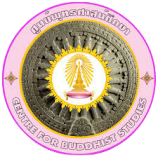Buddhist Influenced Objections to the Rule of Law and the Implications for Social Policy
Abstract
Having been involved in social policy design and implementation for the past 10 years (primarily in security and political development matters), I have become fascinated by the influences on people's ideas regarding society and the acceptable ways to deal with its problems which seem to come from their Buddhist backgrounds. [For example, in drafting a new National Security Policy for the Southern Border Provinces in 1998, there was initially great hesitation and uncertainty in the different committees that had to pass the new policy (made up almost entirely of Buddhists) because it stood out from past policies in its high level of inclusiveness and acceptance of diversity. The policy was eventually approved, not however by intricate security based arguments but by introducing into the discussion the idea of the Muslim population in the region as being “friends in the birth-ageing-sickness-death cycle".] Two things stand out pertaining to these Buddhist influenced views. First, only a few Buddhist points of references are usually used over and over (karma, friends in suffering, good society coming from good people, etc.), and secondly, these points of reference are so entrenched that any new proposed understanding of such commonly held views which come out of Buddhist scholarship and research are either ignored, or those who make such suggestions are considered to need more study, or if they are monks are considered as “monks at the end of the line”, a common phrase that senior monks use to describe such monks. This perspective raises the question of in what way is Buddhist doctrinal scholarship relevant to understanding how Buddhism influences actually held views on the rule of law and other legal issues.
References
Saeng Chandra-ngarm, Buddhism and Thai People, Ming Muang Printing, Chiang Mai, 2003 (6th printing).
Preecha Changkhwanyuen, “The Application of Buddhist Ethics to Thai Society”, The Chulalongkorn Journal of Buddhist Studies, Volume 1, Number 2, 2002, pp. 29-58.
Sompam Promta, Buddhist Philosophy: Man, Society, and Ethical Problems (in Thai), Siam Press, Bangkok, 2005.
Matthew Stephenson, “The Rule of Law”, Brief prepared for the World Bank Group, found at: http://www3.sympatico.ca/alfiorino/stephenson.html
Overcoming violence through the power of reconciliation, (draft of final report, in Thai), National Reconciliation Commission, Thailand, 2006.
Asian Legal Resource Center, “Rule of law versus rule of lords in Thailand: Stronger institutions needed”, Article 2, Vol. 4, No. 3, June 2005, pp. 10-34.
Asian Human Rights Commission, “Why do Thai police electrocute the genitals of persons in their custody”, Article 2, Vol. 4, No. 3, June 2005, pp. 35-37.
Supara Janchitfah, “Interrogating injustice; Make way for the rule of law”, Article 2, Vol. 4, No.3, June 2205, pp. 38-46.
Mark Tamthai, “Can Constitutional Monarchies be justified?”(in Thai), The Ways of Thai Society: Essays celebrating the lOO"1 birthday of Pridi Phanomyong, Bangkok, 2000.







